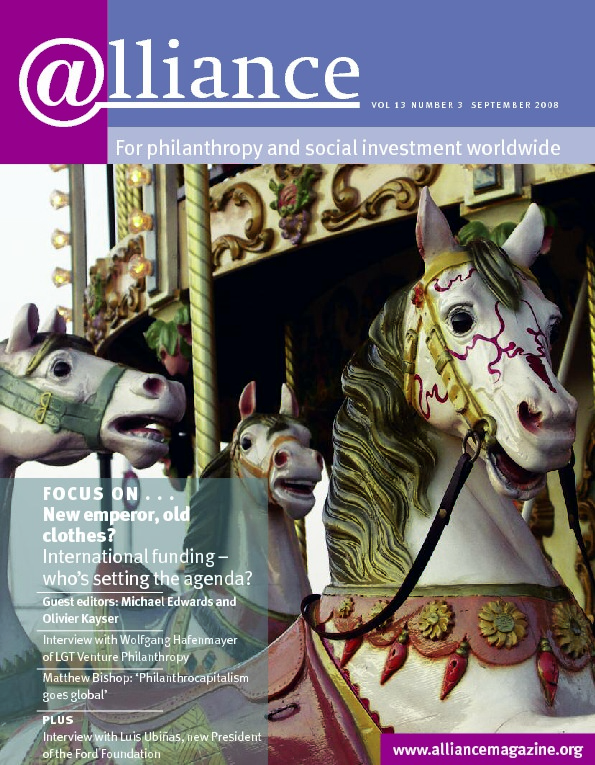Palestinians in the occupied Palestinian territory are the world’s largest per capita recipients of international aid, yet they have very limited influence over how that aid is used. Civil society’s dependence on international aid contributes to a host of problems, including donor-driven agendas, wasted human and financial resources, and fraudulent practices. Also, donor-dependent CSOs become accountable to their donors rather than to their local communities. Communities themselves often see very little of the aid money once the aid agency takes its administrative costs and the international NGO intermediary takes its cut. This leaves Palestinians without mechanisms for real participation, much less leadership, in their own social change and development.
Dalia Association, Palestine’s first community foundation, aims to mobilize resources for Palestinian-led social change and sustainable development. We recently piloted a community-based resource distribution model called ‘The Village Decides’, which we hope will develop into a permanent grantmaking programme. We carried out the pilot in Saffa, an agricultural village 18 kilometers west of Ramallah in the West Bank, home to about 4,500 people. Village residents voted on how to allocate $12,000 of funding to local CSOs. Grants allocated ranged from $1,768 to $3,600, with about $1,100 to be kept in a Saffa Village Fund to be used for the villagers’ benefit later. Dalia Association will try to increase the size of that fund through local and diaspora contributions.
For the next few months, we are meeting as much as possible with grantees to help them think through their budgets, procurement, planning, community engagement, and evaluation. Dalia Association sees the grant as the beginning of a long-term relationship with these organizations and with Saffa village. Our intimate knowledge of the village’s interests and capacities will help us to reach out to them when we hear of other local or international resources that might help them.
In about six months, we will hold a ‘report-back’ so that recipient groups can tell their neighbours how they spent the funds and with what results, thus making the grantees accountable to the local community rather than to external donors. A documentary is being made of the entire process.
Concurrently, we are in the process of piloting two other community-based resource distribution models: Women Supporting Women, a peer-reviewed and peer-monitored grantmaking programme for small women’s organizations, and Crafting Our Own Solutions, an online competition that encourages innovation and support for youth’s social change ideas.
Nora Lester Murad is Executive Director of the Dalia Association. Email NoraM@Dalia.ps
For more information
http://www.Dalia.ps






Comments (0)